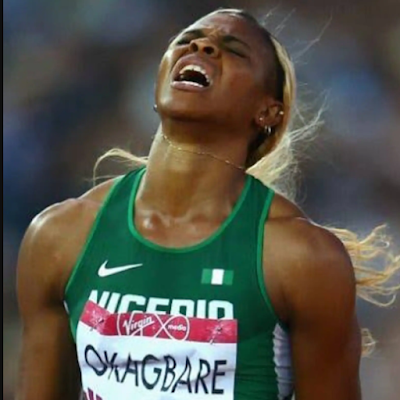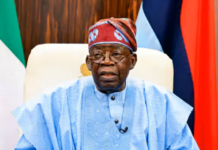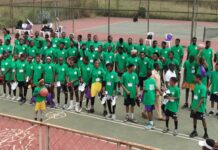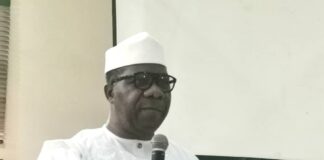Nigeria’s former track queen, Blessing Okagbare’s 10-year ban has been extended, after fresh evidence of doping infringements was brought against her.
A statement issued Monday night by the Athletics Integrity Unit (AIU) indicates that Okagbare has been found to have committed additional anti-doping rule violations – specifically Evading Sample Collection, and Tampering or Attempted Tampering with the Doping Control process.
The latest development has seen Okagbare’s current 10-year ban from athletics extended by one year.
Unfortunately, the 33-year-old sprinter will not suffer the consequences alone as Team Nigeria’s women’s 4x100m team will lose their place at next month’s World Championships in Oregon.
This is because six days after Okagbare evaded sample collection (June 13, 2021), she competed in the 4x100m relay event at the Nigeria Olympic Trials, with her relay squad qualifying for this year’s World Championships.
Okagbare and three others ran a time of 42.97s at the Yabatech Sports Complex, Lagos and that had kept them on last qualification spot up until this new development.
Now, all individual and relay results involving Okagbare, from June 13, 2021, are now disqualified under the rules.
With this development, the Head of the Athletics Integrity Unit (AIU), Brett Clothier, reiterated the need for athletes to always report suspected doping when they see them as it could have damning repercussions for their team-mates and country in the long run.
“Over the years, we have repeatedly seen how one person’s actions adversely affect team-mates who have trained hard and worked honestly for their results,” noted Clothier.
“In a relay team, if one member violates the anti-doping rules, everyone bears the brunt of results being expunged. They all pay the price. In this instance, Nigeria has lost an important qualification spot. Those are the rules and we will not compromise on integrity.”
On February 14, 2022, the Disciplinary Tribunal banned Okagbare for 10 years – two consecutive five-year bans – for the presence and use of multiple prohibited substances, and for her refusal to co-operate with the AIU’s investigation into her case.
The prohibited substances were human Growth Hormone (hGH) and recombinant erythropoietin (EPO). This decision stemmed from charges which the AIU brought against Okagbare on October 7, 2021.
On June 10, 2022, the AIU further charged Okagbare with Evading Sample Collection, and Tampering or Attempted Tampering with the Doping Control process.
The AIU in its statement noted that Okagbare failed to respond to the charges by the extended deadline (June 21) and is therefore deemed to have admitted the anti-doping rule violations (under Rule 2.3 and Rule 2.5 of the World Athletics Anti-Doping Rules) and to have accepted the consequences.













